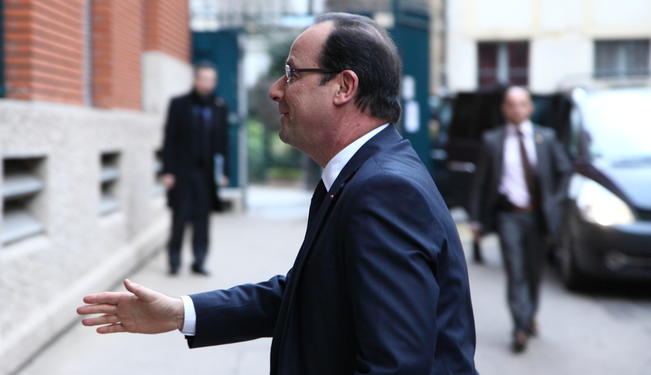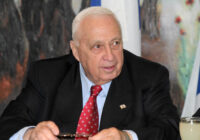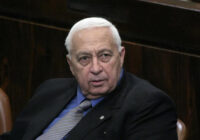Fair Observer's extended report of the week's events. [Note: Click here for the summary version.]
Canada reported the first death in North America from H5N1 avian influenza. The victim had just returned from Beijing where the disease had apparently been contracted. The death is reported to be an isolated case, but it underscores that international travel enables diseases to travel too.
On January 6, Janet Yellen became the first woman to head the Federal Reserve, replacing Ben Bernanke, who had been at the helm since February 1, 2006. Stanley Fischer, the former governor of Israel’s central bank, is to be her deputy. Mohamed el-Erian of Pimco, the world’s largest bond manager, has labeled them a “dream team” and everyone is watching nervously what they will do with the taper, the gradual withdrawal of the excessively loose monetary policy that has defined the Bernanke-era. The great hope for the US economy is that growth takes off and incomes rise, enabling households and governments to pay off their debts.
Yet the economy continues to remain weak. Unemployment is 7% and this does not account for the ever-increasing numbers of those dropping out of the labor force. In fact, labor force participation is at a 35-year low and the Bureau of Labor Statistics reported the worst job creation in years, with only 74,000 new jobs added in December 2013. The unusual cold weather played a part; the construction sector alone could have generated 16,000 new jobs in December. For all of 2013, 2.2 million new jobs were created – a number that is the same as that for 2012.
Yellen and Fischer have a perilous road ahead. Be aggressive with the taper and you might drive the US economy into recession or even a depression. Continue with the current policy and you inflate the already bubbly asset prices. In the words of Bill Gross, the founder of Pimco, investors are playing a “dangerous game that depends on a near perpetual policy of cheap financing and artificially low interest rates in a desperate gamble to promote growth.” As Bill Gross goes on to point out, quantitative easing (QE) might only have redistributed wealth instead of creating it. Banks and the wealthiest 1% of the US population have profited at the cost of savers. Yet the Fed is holding the tiger by the tail and cannot let go. The brutal fact of the matter is that current assumptions will have to be revisited but neither Yellen, nor Fischer, nor anyone else in the Treasury or the White House has demonstrated the intellectual imagination to do so.
Chris Christie, the popular portly governor of New Jersey, who is the great hope of moderate Republicans, is at the center of a major scandal. David Wildstein, a Christie confidante and the governor's appointee to the Port Authority of New York and New Jersey, closed two of the three lanes that lead to the George Washington Bridge in Fort Lee, across the Hudson from Manhattan. This led to massive traffic jams in Fort Lee and it turns out that Christie’s aides were carrying out a vendetta against the town’s Democratic mayor, who had refused to endorse Christie for re-election.
Under intense media scrutiny, Christie is behaving impeccably. He has apologized in public and held a press conference in which he came across as contrite and conciliatory. He went to Fort Lee to offer a face-to-face apology to the people of the town and its aggrieved mayor, who called Christie’s behavior “gracious” and “conciliatory.” While the media is delighting in writing Christie’s epitaph, this scandal might strengthen Christie because of the composure he is showing under pressure. What is more worrying for Christie is the investigation by federal officials that he might have improperly used some of the Hurricane Sandy relief funds to produce tourism advertisements that starred him and his family. For all his faults, Christie is the great hope for the Republicans and for the US because he brings a dose of common-sense politics that has evaporated in an era of doctrinaire partisanship. The US needs more governors like Christie who, for all his faults, has demonstrated an appetite to have a go at the intractable problems that blight New Jersey.
Argentina continues to hurtle towards disaster. After police strikes, a record heat wave, blackouts, and freak piranha attacks come the specter of more strikes by public employees who might emulate the police to gain wage rises of 30%. With inflation running at 25%, Argentina is in a spiral where increasing fiscal profligacy fuels inflation which, in turn, fuels wage pressures. An ineffectual government led by an ailing president does it no favors. Its government has frozen prices of common goods such as milk, sunflower and beef, and banned the sale of foreign currency since 2011. By the end of 2013, Argentina’s foreign reserves have fallen from a high of $50 billion to a mere $30 billion and, if the 2014 harvest falters, the country's economic troubles, social unrest and political tensions will amplify.
In the Brazilian city of Campinas, the murder of an off-duty policeman led to a spate of killings. Reports put the death toll at 13. Following violence last week, this further brings into focus the dysfunctional criminal justice system in the country. An earlier study by the Latin America Studies Center blamed “impunity and other institutional deficiencies” for a culture of violence where people kill each other for trivial reasons. The lack of regard for life is further demonstrated by the fact that Brazilian security forces killed one out of 23 people they arrested in 2008 as compared to the US rate of one death per 37,000 arrests that year. An investigation is underway to find out if the deaths in Campinas were revenge killings for the policeman who died in an armed robbery. Those who died had criminal records and the caliber of weapons used was the same as that of military police.
Brazil faces a big challenge with extrajudicial killings. When the criminal justice system fails then police start resorting to killings to curb crime, creating a spiral of violence that is difficult to control until laws are reformed, police are given resources, and prosecutors are trained to present cases in courts that are independent, efficient and honest.
In Mexico, vigilantes seized Nueva Italia, a small town in the western state of Michoacan. They attacked the dreaded Knights Templar gang and claimed they were liberating the area. Some allege that they are backed by New Generation, a rival gang. Mexico’s interior secretary announced that federal forces will take over security in a large part of Michoacan. As stated in an earlier report, the violence in Mexico is unlikely to end until demand for drugs in the US declines. Also, the supply of weapons from north of the border has to diminish. At the same time, Mexico will have to rebuild institutions and repair its social fabric that has clearly frayed after years of brutal violence that has caused more than 70,000 deaths in the last six years.
French President François Hollande is in the news not for his irrational economic policy or for his macho foreign policy, but for his spectacular love life. In keeping with the tradition established by Louis XIV and continued by French leaders such as François Mitterand and Dominique Strauss-Kahn, the nondescript vertically challenged, singularly uncharismatic Hollande is having an affair with Julie Gayet – an actress who participated in his election campaign. Critics have long argued that the most interesting thing about Hollande is his love life. But in France, the right to privacy is well-established and neither the media, nor the people seem to care too much about the president’s personal affairs.
France, in the words of Danish diplomat, is still a pre-modern country where its leaders are treated like aristocrats of yore and not held to the same level of scrutiny or accountability as in northern Europe. For instance, Trierweiler has an office in Elysee Palace with six staff, which is popularly known as “Madame's domain.” It is supported by public money. If the love life of the president is purely a personal matter, then why should the French taxpayers pay for his partner or mistresses? Surely, the days of Madame de Pompadour are over. More importantly, the question over whether Hollande is focused enough on the job in light of his turbulent private life is an important one to consider.
In Northern Ireland, the biggest-ever public enquiry into child abuse is proceeding. As the BBC reports: “It is investigating claims of physical, sexual, and emotional abuse, as well as childhood neglect.” Allegations date from 1922 to 1995 and will examine claims against 13 children’s homes and borstals. This is a watershed for Northern Ireland and marks a giant step in the normalization of a society that has suffered greatly from violence, sectarian strife, and rampant injustice.
Ariel Sharon, the former Israeli general and prime minister, died after eight years in coma. As a fighting man, Sharon was one of the best of the 20th century. He was also “brutal, greedy, uncompromising and dishonest,” as Miko Peled, the Israeli author of The General’s Son, pithily says. Sharon headed the dreaded commando Unit 101 in the 1950s that unleashed such brutality that it was eventually disbanded. In the 1953 raid on Qibya, a village in the Jordanian-controlled West Bank, 69 Palestinians were killed — two-thirds were women and children. Sharon’s record of brutality is extensive but three of his actions deserve close attention.
First, he invaded Lebanon in 1982. It ended up as a catastrophe both for Lebanon and Israel. More importantly, Israel’s Kahan Commission found that Sharon bore “personal responsibility” for the Sabra and Shatila massacres, in which several hundred people were massacred, including infants, children, pregnant women, and the elderly — some bodies were found mutilated. Second, as Robert Fisk points out, Sharon consistently opposed peace whether it was the 1979 peace treaty with Egypt or the Oslo agreement in 1993. Finally, under Sharon’s leadership, “the number of Israeli settlers in the West Bank, including East Jerusalem, and the Golan Heights, increased from roughly 388,000 to 461,000.” His much touted withdrawal from Gaza was a unilateral action that removed 8,000 settlers and only four West Bank settlements. Thereafter, he proceeded to reduce Gaza into an open air prison. He also built the West Bank barrier, appropriating even more occupied land and causing much hardship and indignities on Palestinians. In 2004, the International Court of Justice termed the barrier a “wall” and deemed it illegal.
In summary, Sharon was a modern day Genghis Khan, combining military genius with unremitting ruthlessness. To his supporters and allies, he is a brave hero. To others, he is yet another butcher who escaped justice.
Tunisia's tortuous path towards a new constitution moved in a positive direction. Its constituent assembly approved an article enshrining equality of opportunity between the sexes in public life and aim for equality of representation in elected bodies. Tunisia’s 1956 constitution gave women far greater rights than elsewhere in the Arab world and secular politicians feared that Islamists might seek to roll back those rights. More than a year ago, Ferhat Horchani, a member of the Tunisian Constitutional and Electoral Commission, remarked that “democracy is a constant struggle” and Tunisia’s political system is going through a critical period in that struggle.
The civil war in Syria continues while conflict rages on in Iraq. Syrian rebels have reportedly killed 34 foreign fighters from groups linked to al-Qaeda. This seems to be part of a broader pushback against the Islamic State of Iraq and the Levant (ISIL). The bloodiest rebel-on-rebel violence has led to ISIL losing its main Syrian base of Aleppo. Even though ISIL is the restructured al-Qaeda branch of Iraq, the central al-Qaeda leadership has opposed its expansion in Syria and thrown its weight behind the al-Nusra Front instead.
Meanwhile, the US and UK have declared that they might stop supporting rebel groups that fail to participate in the forthcoming Geneva peace talks. There are indications that Iran might be open to a compromise on Syria and pull the rug under the Assad regime, but the US has shown a lack of maturity in excluding Tehran from the Geneva talks.
In neighboring Iraq, there is further proof of this proposition. ISIL has taken over Fallujah and parts of Ramadi in the western province of Anbar. Iraqi Prime Minister Nouri al-Maliki is urging the Sunni fighters to give up, while vowing a “sacred war” against ISIL. As argued in the previous report, there is no possibility of peace in the region without negotiating with Iran.
Thankfully, the US and Iran seem to be inching towards some sort of rapprochement. On Sunday, Iran and the P5+1 announced a deal that lays down the implementation of the agreement reached in November 2013. Iran will retain the ability to enrich uranium after the final set of restrictions. On January 20, this agreement comes into effect and President Barack Obama will have to veto fresh sanctions proposed by an intransigent Congress to achieve rapprochement. Meanwhile, Obama faces the specter of Russian President Vladimir Putin offering a lucrative deal to Iran, which entails Moscow trading 500,000 barrels of oil per day for Russian goods. The deal would be worth $1.5 billion per month, sending a clear signal to the US that Russia is willing to push back against increased pressure on Iran.
Peace talks continue incongruously on a dance floor of a nightclub in Addis Ababa between the South Sudanese government and rebels. The main sticking point is the release of prisoners loyal to rebel Riek Machar by President Salva Kiir. In the meantime, government troops seem to be gaining ground. They have captured Bentiu with Ugandan help and are approaching Bor, the last state capital in rebel hands. The rebels have meanwhile announced that they will march to the capital city, Juba. The fighting has killed more than 1,000 people and displaced about 400,000 so far. With external powers such as the US and China putting pressure on both parties, a deal remains well within the realm of possibility and some sort of ceasefire will eventually be negotiated.
After reports of new levels of brutality emanating from the Central African Republican (CAR), the country’s new interim leader has announced an end to chaos. Michel Djotodia, who seized power in March 2013 and became the first Muslim leader of CAR, has stepped down. French and African Union troops are manning checkpoints to enforce the peace and Christians have started re-enlisting in the army after deserting or leaving to join vigilante groups. Christians have the ascendancy for now and their leaders will have to proceed judiciously so as to not usher in a return to violence.
As CAR returns to peace, Mali is slipping back into violence. Tuareg rebels have declared a five-month old peace deal with the government to be dead. Tuareg separatists continue to demand an independent homeland they call Azawad. The ceasefire was broken after government troops fired on protesters blocking a prime ministerial visit to a rebel-controlled northeastern town. Regardless of any efforts by the French, violence will keep returning to Mali because its boundaries are arbitrary and Tuareg rebels are increasingly inclined towards independence.
Rwandan President Paul Kagame is turning worryingly authoritarian. Two weeks after his intelligence chief was found murdered in South Africa, he has come out with a warning that those who betray the country will face “consequences.” Kagame seems to be turning into the unfortunate stereotype of an African big man who does not tolerate any opposition. The fact that his opponents live in fear of their lives even in exile and that he promises dire consequences in public is alarming. It is time for African rulers like Kagame and Mugabe to go because they are only blighting their countries by staying in office.
In Senegal, a company named Senhuile has been granted 20,000 hectares of land to produce sunflower seeds for export to Italy. The Italian Tampieri Financial Group owns 51% and the local Senethanol SA owns 49%. The Senhuile project affects 37 villages in the area, mainly inhabited by Peul cattle farmers. It is in the area of Ndiael that was formerly designated for nature preservation. The deal seems like a land grab with payoffs to corrupt officials and the opacity about the details is unhealthy. Such land deals have increasingly been taking place in Africa as foreign companies take advantage of weak governance and corruption to marginalize local inhabitants. In Senegal, the affected villagers are protesting to retain their grazing rights and water sources, while the conflict is likely to escalate.
The US State Department declared Qari Saifullah, an Afghan Taliban leader based in the Pakistani city of Quetta, to be a “specially designated global terrorist.” Meanwhile, the Taliban has claimed responsibility for a bicycle bomb, attacking a bus carrying police recruits. Its most spectacular attack has come in Karachi. Chaudhry Aslam, the city’s head of anti-terror operations was killed in a bomb blast. He had arrested dozens of militants and survived numerous previous attempts on his life. Aslam was accused of orchestrating “fake encounters,” a practice popular in both Pakistan and India that involves capturing and killing militants in staged gunfights instead of taking them through the courts. Pakistan’s politicians condemned the attack. Imran Khan, the charismatic cricketer-turned-politician, continues to advocate negotiating with the Taliban while joining in the condemnation of Aslam’s assassination. It is clear that violence in Afghanistan is spilling ever increasingly into Pakistan.
The violence is also spilling into India. A senior police officer was killed last week in Kashmir and Indian troops have now killed three fighters near Srinagar. After the US invasion of Afghanistan in 2001, violence dropped in Kashmir. This trend has come to an end and India fears more Afghan fighters infiltrating Kashmir once US troops depart from Afghanistan. Despite its shared strategic interests with the US, India’s political and bureaucratic leadership seem delighted to cut off the nose to spite the face. After the US indicted India’s disgraced diplomat for visa fraud but gave her diplomatic immunity allowing her to leave, India retaliated by expelling the American diplomat who apparently evacuated the family of the Indian diplomat’s maid.
A more positive development for the country is its achievement of polio free status. No new cases of the disease have been reported for the last three years. This is a phenomenal public health story because India ran a relentless and orchestrated public campaign to reach its remotest corners. Its vaccination program began in the 1990s and cost $160 million. Around 2.4 million volunteers and more than 150,000 community workers participated in the immunization program.
In Thailand, the opposition continues its tactic of taking to the streets to unseat Prime Minister Yingluck Shinawatra. They oppose elections and want power to be handed to an appointed government instead. As stated in numerous earlier reports, this is a preposterous idea but the opposition has a fanatical base and it no longer believes in democracy. It is therefore using the power of the street to oust Shinawatra and force a compromise. This continuing turmoil is led by Suthep Thaugsuban, a member of the country’s dominant elite who is charged with murder for his role in the deadly crackdown on the 2010 political protests. The current protests will divide Thailand further and cause major economic damage. Its currency is already under pressure, tourism is suffering, and both exports as well as investments are falling because of the continuing uncertainty.
In Cambodia, unions have been hit by court cases after their strikes were put down by brute force. More than 150 factories have filed cases against the six unions involved in the strike. The unions believe they are victims of intimidation in a country where the judiciary is politicized, but they have vowed to fight the charges in court.
Meanwhile, Buddhist monks have joined the battle to raise minimum wage. Cambodia’s growing inequality and corruption is provoking responses across different sections of society. For instance, rural areas that had once been a stronghold of the regime have now turned against it because of rampant land grabs by the ruling party. Although the regime may have seen off this wave of protests, its base is weakening and we are seeing the beginning of the end of Prime Minister Hun Sen’s 29-year reign.
The US is deploying 800 more troops to South Korea and sending Taiwan anti-ship missiles. As former US secretary of defense memoirs reveal a deep divide in the top echelons of the US government, it seems that its Asia Pivot is marked by the same confusion as its policy in the Middle East or Afghanistan. The US measures are more cosmetic than real. They irk China without deterring it. Instead, the US would be better off focusing on its current engagements and restraining allies like Japan to ensure that tensions in Asia do not spin out of control. In the reckless tit-for-tat game going on in East China Sea, three Chinese government ships entered disputed waters off Tokyo-controlled islands and Japan vowed to defend its territory.
Two more developments are significant this week.
First, a Chinese warship came to the Mediterranean to escort Syria’s chemical weapons to a US ship. It was a projection of power well beyond its near neighborhood, while it remains to be seen if this was a one-off or an increased Chinese presence on the seas going forward.
Second, China overtook the US as the world’s largest trading nation. The sum of its imports and exports for 2013 was $3.87 trillion, while the US figure for the same period was $3.82 trillion. While many have cast doubt on Chinese figures, it is clear that China’s trade is growing dramatically. It is already the largest trading partner of countries such as Brazil, Australia and South Africa. China’s increasing influence threatens to disrupt regional trading blocs like the EU. For instance, Germany will export twice as much to China by the end of the decade as it does to neighboring France. The post-World War II era when the US emerged as the top trading nation is over. Now, there is a new 800-pound gorilla in the room and the world is about to get even more interesting.
The views expressed in this article are the author's own and do not necessarily reflect Fair Observer’s editorial policy.
Image: Copyright © Shutterstock. All Rights Reserved
Support Fair Observer
We rely on your support for our independence, diversity and quality.
For more than 10 years, Fair Observer has been free, fair and independent. No billionaire owns us, no advertisers control us. We are a reader-supported nonprofit. Unlike many other publications, we keep our content free for readers regardless of where they live or whether they can afford to pay. We have no paywalls and no ads.
In the post-truth era of fake news, echo chambers and filter bubbles, we publish a plurality of perspectives from around the world. Anyone can publish with us, but everyone goes through a rigorous editorial process. So, you get fact-checked, well-reasoned content instead of noise.
We publish 2,500+ voices from 90+ countries. We also conduct education and training programs
on subjects ranging from digital media and journalism to writing and critical thinking. This
doesn’t come cheap. Servers, editors, trainers and web developers cost
money.
Please consider supporting us on a regular basis as a recurring donor or a
sustaining member.
Will you support FO’s journalism?
We rely on your support for our independence, diversity and quality.







Comment